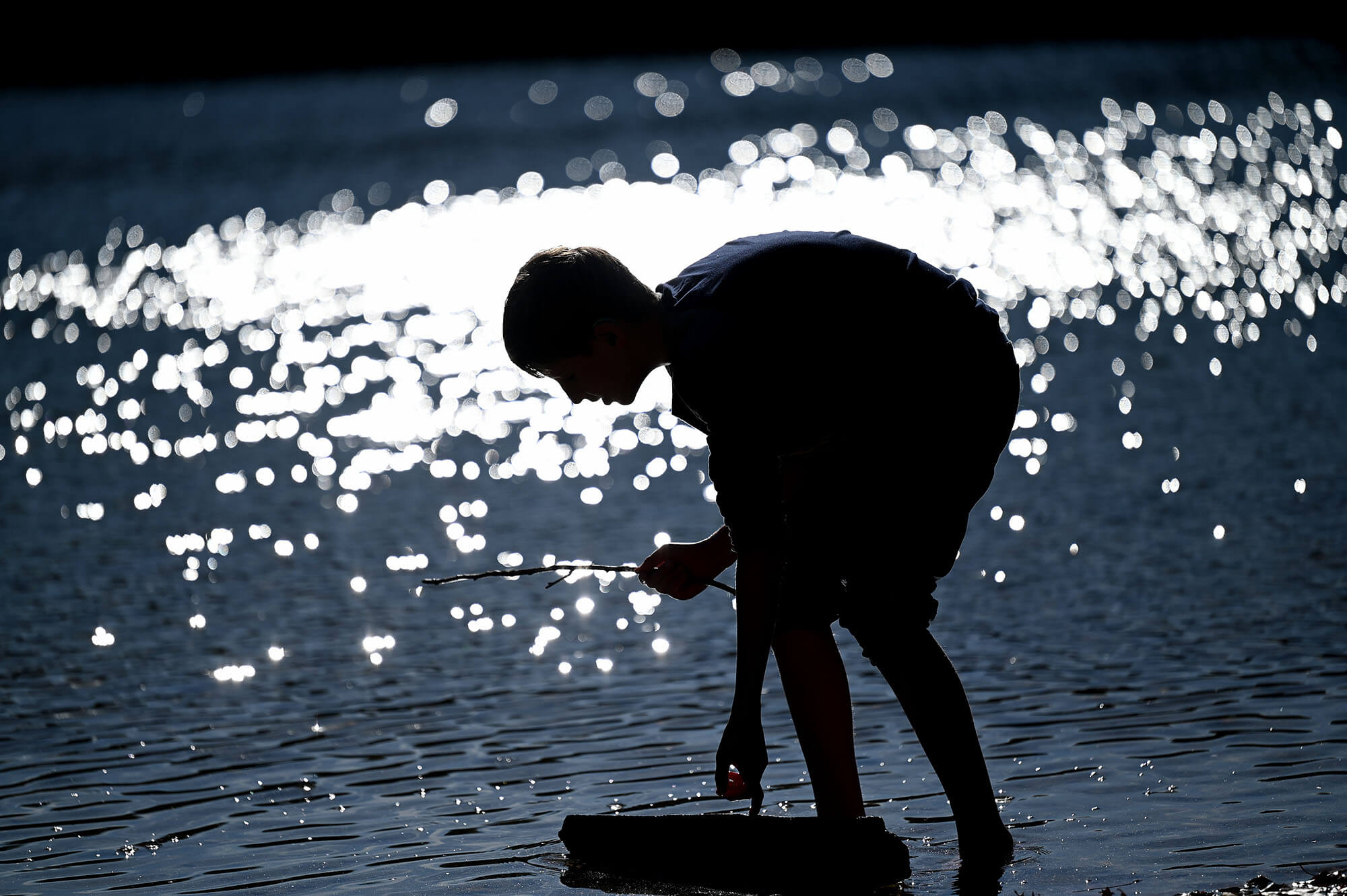By Erin Tiernan — Erin@concordbridge.org
On a brisk November day, two people stood on the near-empty shore of Walden Pond, shedding their fleece-lined overcoats to reveal bathing suits.
Lisa and Bob Halpin are “dippers,” or cold plungers. They lived in Concord for decades before moving to Sudbury and return to Walden near-daily.
“This is such a beautiful, peaceful place,” Lisa Halpin said.
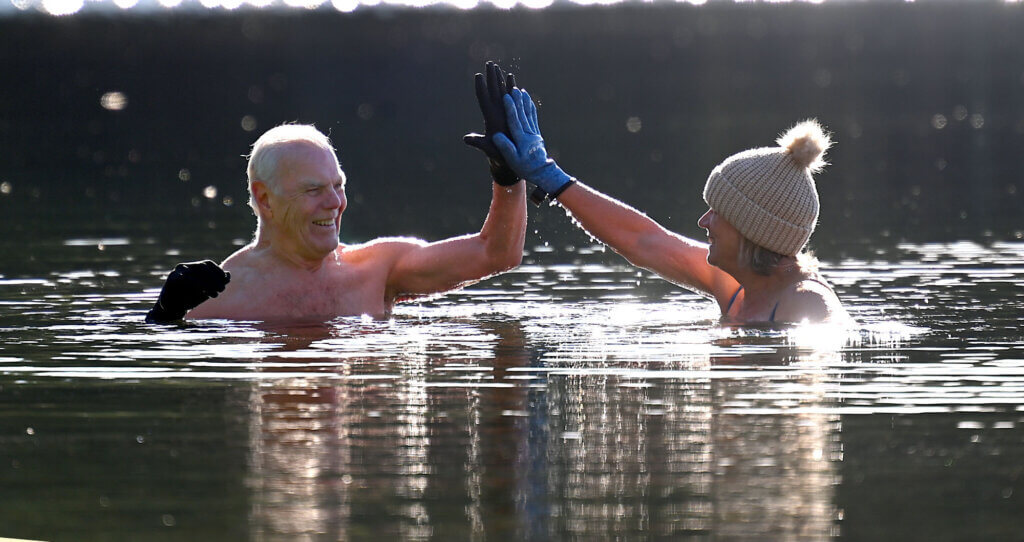
The kind of day they enjoyed has become increasingly rare at Walden Pond, where a combination of little-understood natural forces, overcrowding, and pollution exacerbated by climate change complicated the visitor experience for much of 2024.
For now, the solitude that Henry David Thoreau wrote of finding at Walden Pond still appears accessible.
Researchers, however, say Walden is changing. How that will affect the public’s ability to swim, hike, fish, and otherwise enjoy nature is an open question.
The ‘strange cycle’
The same expanse of beach where the Halpins stood on that November day was underwater throughout the warmer months.
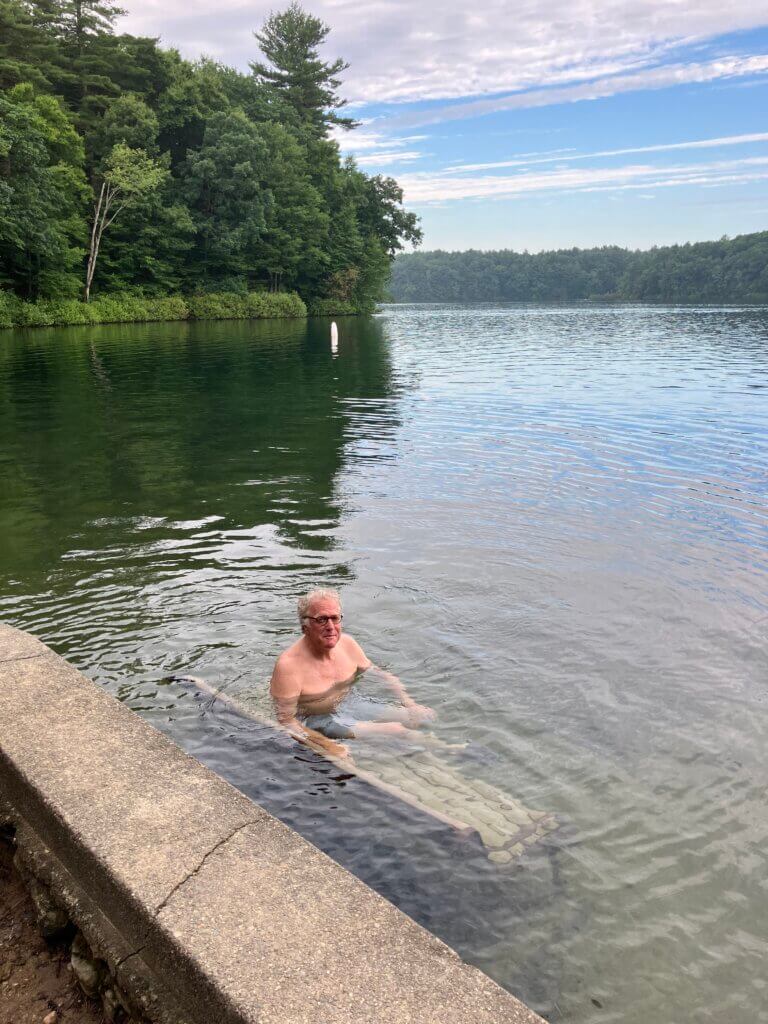
Water levels swelled so high in May that Concordian Keith Bergman was immersed up to his chest when he plopped down on his favorite bench, which usually sits on dry land.
Bergman, who walks regularly at the pond with his wife, was so struck by the water level that he sat and posed for a photo.
“The park bench was about five feet underwater, and that was just such a curiosity,” he told The Concord Bridge.
Waters didn’t start to recede until the end of October.
Park rangers attributed the rise to torrential spring rains, which brought 10 more inches of rain than usual to the Walden area. Boston University professor Richard Primack, a biologist, said the rise and fall of the pond’s waters is due to an apparently naturally occurring “strange cycle” documented by Thoreau himself.
“Whether regularly or not, and within what period, nobody knows, though, as usual, many pretend to know,” Thoreau wrote of the phenomenon in “Walden.”
Primack said the water-fluctuation mystery endures to this day. But this year’s particularly swollen waters meant even less space for beachgoers to spread out on the banks of the pond, a popular summer destination.
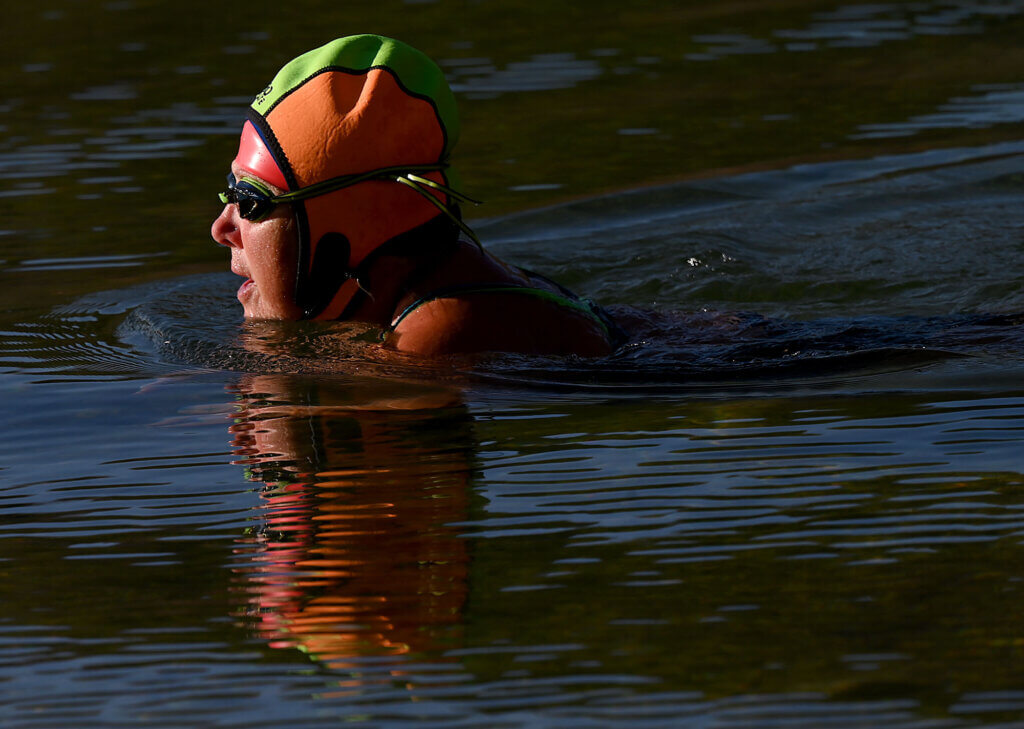
Visitors surge too
Nowadays, an estimated 600,000 flock to Walden annually. From May to September the 300-car parking lot is almost guaranteed to be full.
Park rangers halted entry to the park 63 times this year — seven more instances than in 2023. The park has a 1,000-person capacity.
Park rangers said that with all but a sliver of the beach submerged, beachgoers were spreading their towels all over the wooded areas. Fed up with visitors “trampling” sensitive habitats, officials in June took to Instagram to urge beachgoers to swim elsewhere.
Read more: New bathhouse seen as key step in curbing damage to Walden Pond
Crowds have been an ongoing concern at Walden Pond for decades, according to oral history interviews conducted in 1977 and 1978 for the Concord Free Public Library’s “Walden Pond Remembered” series.
Concordian David Little, born in 1912, told interviewers that Walden was “not very crowded” during his youth in the 1920s. He said that changed at the end of the decade as automobiles became more common among American families.
After “Henry Ford put a car in everybody’s driveway or in front of everybody’s hydrant in the city [sic]; that’s when the great crowds began coming to Walden, and they did overuse it,” Little said.
The Department of Conservation and Recreation, which operates the park, doesn’t maintain attendance data.
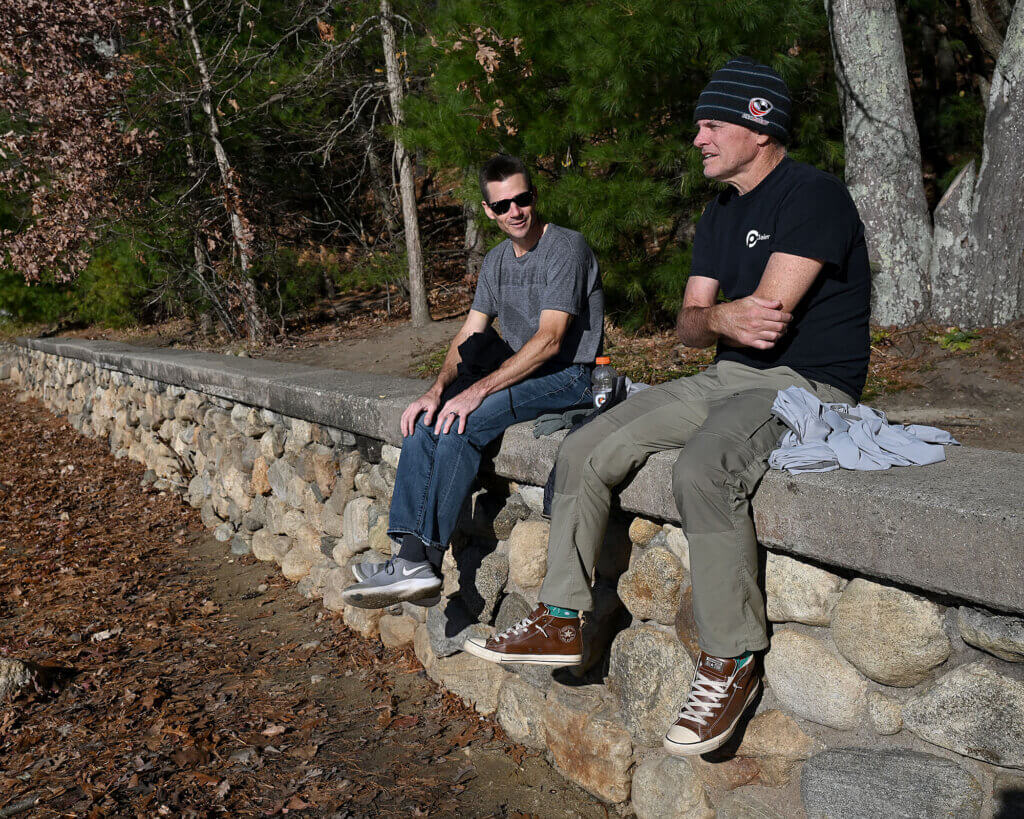
Walden’s ‘lesser twin’
The crowding is one reason Concordians such as Janet Rothrock choose to stay away.
Rothrock prefers a private pond in her neighborhood. “It’s always much quieter, and I’ve always thought it had to be what Henry David Thoreau must have felt during his time at Walden Pond,” she said.
She said Walden is too crowded and encouraged swimmers to seek out other options like nearby White Pond — “the lesser twin of Walden,” as Thoreau put it.
Concordian Charles Jennings, however, said even in summer, he can still find solitude around Walden. Jennings, an amateur photographer, runs there almost daily. “You just have to walk a few yards away from the beaches and the main trails, and you can still really enjoy nature,” he said.
The Concord Bridge spoke to dozens of people walking, swimming, fishing, and playing at the pond’s edge during a quiet, sunny fall day. All said it’s a resource worth keeping in the public sphere.

The masses flock to Walden both for its history and for recreation. And all that Walden has to offer was on full display that November day.
- Buses brought 76 eighth graders from Tampa Prep, a Florida school, to explore Thoreau’s replica cabin and appreciate a slice of American literary lore.
- Manny Rodrigues, of Belmont, has been taking walks in Walden Pond for two decades. His 17-year-old daughter, Lucia, joined him that day. “This place brings people closer to the history of New England. We can see where Thoreau lived and access this kind of peacefulness,” Lucia said.
- Since 1995, Erzsebet Bognar of Lexington has made a near-daily pilgrimage to Walden to swim — in any season and in all temperatures. Summers, she brings her grandchildren, who are Concord locals. Bognar, a teacher and Hungarian immigrant, says in Walden’s waters, she finds peace. “I can’t sleep if I don’t come out here,” she said.
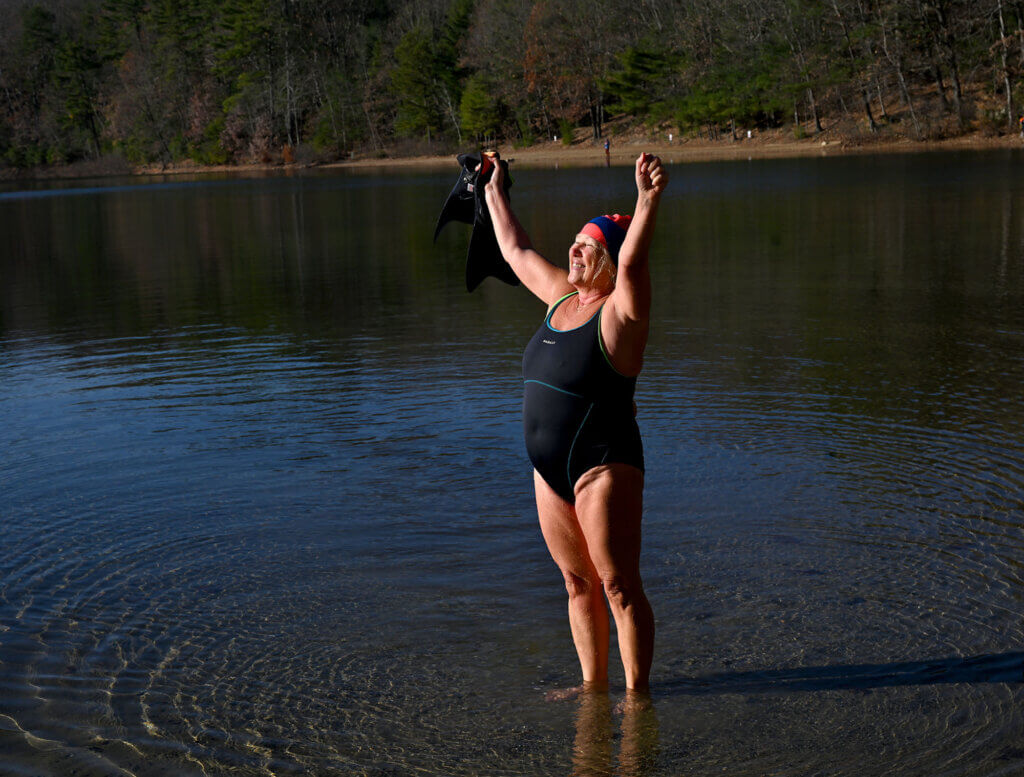
Echoes of Thoreau
Bergman calls Walden “a spiritual place.”
Asked to consider the human-imposed challenges complicating Walden’s natural offerings, including the threat of an expansion at nearby Hanscom Field that could increase jet traffic, Bergman said it evoked “the way that humans interact with nature.”
Thoreau described the sound of trains cutting through the Walden solitude. Bergman, in hearing those trains still today, said it’s a lesson in figuring out how to steward conservation amid human-caused problems — and put everything in historical context.
“It just fascinates me to think that there’s nothing unusual about that train going by Walden Pond,” he said, “because there was a train going by Thoreau’s house, too.”
December 11, 2024: This story has been updated to more accurately reflect Rothrock’s remarks about Concord ponds.



